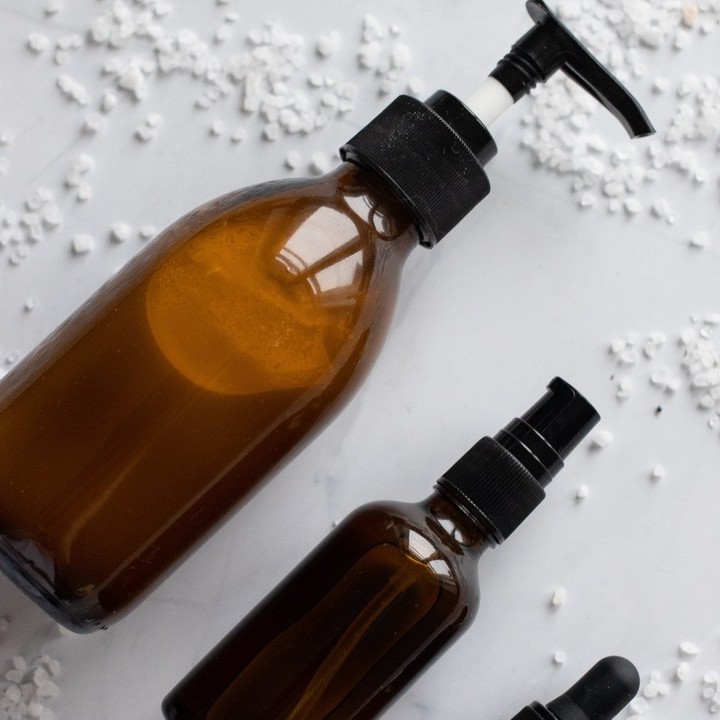
What is The Best Sunscreen for Sensitive Skin?
What is The Best Sunscreen for Sensitive Skin?
Sunscreen is a crucial component of any skincare routine, serving as a protective barrier against the harmful effects of ultraviolet (UV) radiation from the sun. For individuals with sensitive skin, finding the right sunscreen becomes even more critical, as certain formulations may trigger irritation or allergic reactions. In this article, we will delve into the characteristics of sensitive skin, the importance of sunscreen, and explore the features that make a sunscreen suitable for sensitive skin. Furthermore, we will discuss some of the top sunscreen products available on the market that cater specifically to those with sensitive skin.
Understanding Sensitive Skin:
Sensitive skin is characterized by heightened reactivity to various environmental factors, leading to redness, itching, burning sensations, or other discomforts. Factors such as genetics, underlying skin conditions, or exposure to irritants can contribute to skin sensitivity. Individuals with sensitive skin often need to be cautious about the products they use, including sunscreen, to prevent adverse reactions.
Importance of Sunscreen for Sensitive Skin:
The primary purpose of sunscreen is to protect the skin from the harmful effects of UV radiation. UV rays, specifically UVA and UVB, can cause sunburn, premature aging, and increase the risk of skin cancer. For individuals with sensitive skin, the impact of UV radiation can be more pronounced, exacerbating existing skin sensitivities and leading to discomfort.
Characteristics of a Sunscreen for Sensitive Skin:
- Broad-Spectrum Protection: A suitable sunscreen for sensitive skin should provide broad-spectrum protection, guarding against both UVA and UVB rays. UVA rays are responsible for premature aging, while UVB rays cause sunburn. A broad-spectrum sunscreen ensures comprehensive protection against these harmful effects.
- Physical or Mineral Filters: Physical or mineral sunscreens contain active ingredients like zinc oxide or titanium dioxide, forming a protective barrier on the skin's surface. These ingredients are less likely to cause irritation, making them ideal for sensitive skin. They work by reflecting and scattering UV radiation rather than absorbing it.
- Fragrance-Free Formulas: Fragrances are common culprits for skin irritation, especially for those with sensitive skin. Opting for a sunscreen with a fragrance-free formula reduces the risk of allergic reactions or skin sensitivities.
- Hypoallergenic Formulation: Sunscreens labeled as hypoallergenic are formulated to minimize the risk of allergic reactions. These products undergo rigorous testing to ensure they are less likely to cause irritation, making them suitable for individuals with sensitive skin.
- Non-Comedogenic: Non-comedogenic sunscreens are designed to not clog pores, reducing the risk of acne or breakouts. This is particularly important for individuals with sensitive skin, as pore-clogging ingredients can exacerbate skin issues.
- Water-Resistant: A water-resistant sunscreen is beneficial for those who engage in water activities or sweat frequently. This ensures that the sunscreen remains effective even when exposed to water, providing continuous protection.
When considering sunscreens for sensitive skin, the choice between physical and mineral filters is crucial. Both types offer sun protection, but they function differently and may have distinct advantages for individuals with sensitive skin.
Physical Filters:
- Active Ingredients: Physical filters use mineral ingredients such as zinc oxide or titanium dioxide. These minerals sit on the skin's surface, creating a barrier that reflects and scatters UV rays.
- Gentle on Sensitive Skin: Physical filters are generally considered gentler on sensitive skin because they are less likely to cause irritation. They are known for being well-tolerated by individuals with various skin sensitivities, including those prone to allergies.
- Broad-Spectrum Protection: Physical filters provide broad-spectrum protection against both UVA and UVB rays. This comprehensive coverage is essential for preventing sunburn, premature aging, and reducing the risk of skin cancer.
- Immediate Effectiveness: Unlike some chemical filters that require time to become active on the skin, physical filters start working immediately upon application.
Mineral Filters:
- Active Ingredients: Mineral filters, like zinc oxide and titanium dioxide, are considered natural ingredients. They work by forming a protective barrier on the skin, reflecting and scattering UV radiation.
- Hypoallergenic Properties: Mineral filters are often hypoallergenic, making them a suitable choice for individuals with sensitive skin. They are less likely to cause allergic reactions or irritation, making them a preferred option for those with skin sensitivities.
- Less Risk of Chemical Sensitivity: Some people may experience sensitivity to certain chemicals found in chemical sunscreens. Mineral filters can be a safer alternative for those who are prone to chemical sensitivity.
- Environmentally Friendly: Mineral filters are considered reef-safe and environmentally friendly. They do not contribute to coral reef damage, which has become a growing concern with chemical sunscreen ingredients.
Choosing the Best Option:
The choice between physical and mineral filters often comes down to personal preference, skin type, and lifestyle. Here are some considerations:
- Skin Sensitivity: For individuals with extremely sensitive skin or conditions such as rosacea, physical filters, particularly zinc oxide, are often recommended due to their gentle nature.
- Cosmetic Appearance: Some people find that physical sunscreens can leave a white cast on the skin, especially with higher concentrations of zinc oxide. Advances in formulation have led to micronized or nano-sized particles that reduce this effect, but it's still a consideration for some users.
- Water Resistance: Physical filters, especially zinc oxide, tend to provide better water resistance than some chemical filters. This makes them suitable for water-related activities and outdoor sports.
- Daily Use: Mineral sunscreens are suitable for daily use, and their hypoallergenic properties make them a reliable choice for individuals looking for a sunscreen that can be incorporated into their daily skincare routine without irritating.
Ultimately, both physical and mineral filters have their advantages, and the "better" option depends on individual preferences and skin sensitivities. It's essential to test different products to find the one that works best for your specific needs and provides the necessary sun protection without compromising skin health. If uncertain, consulting with a dermatologist can help in making an informed decision tailored to individual skin conditions and preferences.
Top Sunscreen Products for Sensitive Skin:
- Bio Derma Photoderm (Spf 50+) Lait Ultra 200ml : Bioderma Photoderm Lait ULTRA SPF50+ is the result of the latest research of Laboratoire Bioderma. It was tailored to provide very high protection, reinforced against UVA rays for all sensitive skin, even the most vulnerable. Its formula is inspired by the natural protective mechanisms of the skin under the sun. .
- CeraVe Hydrating Mineral Sunscreen SPF 30: CeraVe is known for its gentle formulations, and this sunscreen is no exception. It contains 100% mineral filters and essential ceramides to nourish the skin while providing sun protection.
- La Roche-Posay Anthelios Melt-in Milk Sunscreen SPF 60: La Roche-Posay is a renowned skincare brand, and this sunscreen offers high SPF protection with a fast-absorbing, non-greasy texture. It is suitable for sensitive skin and provides a mattifying effect.
- Aderma (50+ Spf )Protect Cream 40 Ml : Aderma (50+ Spf )Protect Cream 40 Ml Protects the skin against the harmful effects of UV and UVA rays, reinforces the skin's protective barrier, non-sticky texture, water-resistant formula, SPF 50+
In conclusion, choosing the best sunscreen for sensitive skin involves considering various factors, including broad-spectrum protection, physical or mineral filters, fragrance-free formulas, hypoallergenic formulations, non-comedogenic properties, and water resistance. The top sunscreen products mentioned in this guide are just a few examples of options available on the market. Individuals with sensitive skin need to perform patch tests and consult with dermatologists to find the most suitable sunscreen for their unique needs. By prioritizing sun protection with the right sunscreen, individuals with sensitive skin can enjoy the outdoors while minimizing the risk of irritation and maintaining optimal skin health.
 العربية
العربية





